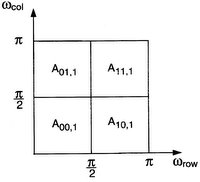
JUDGE RADER: LIZARDTECH MAY "DOOM ANY HOPE" FOR CLARIFIED WRITTEN-DESCRIPTION TEST. Yesterday the Federal Circuit, in a close decision, denied Lizazrdtech's petition for rehearing en banc in the case of Lizardtech vs. Earth Resource Mapping (05-1062), where the Federal Circuit held that generically claiming a specific embodiment disclosed in the specification will render the claim invalid under 35 U.S.C. 112(1) for failing the written description requirement.
In the majority decision (Lourie, Michel, Newman), it was stated that the caselaw was consistent on the requirements for fulfilling the written description rquirement, and that the statute clearly sets forth that "[t]he specification shall contain a written description of the invention, and of the manner and process of making and using it, in such full, clear, concise, and exact terms as to enable any person skilled in the art to which it pertains, or with which it is most nearly connected, to make and use the same."
To justify the invalidation of Lizartech's claim, Judge Lourie stated the following:
Whatever inconsistencies may exist in the application of the law lie in the different fact situations with which the courts are faced. Compliance with the written description requirement has been held to be a question of fact, so what constitutes an adequate written description depends on what is claimed and what is described.
And, of course, claims may vary from the specification because they are usually amended during prosecution. However, in whatever form the claims are finally issued, they must be interpreted, in light of the written description, but not beyond it, because otherwise they would be interpreted to cover inventions or aspects of an invention that have not been disclosed. Claims are not necessarily limited to preferred embodiments, but, if there are no other embodiments, and no other disclosure, then they may be so limited. One does not receive entitlement to a period of exclusivity for what one has not disclosed to the public . . . But merely calling an embodiment "preferred," when there are no others, does not entitle one to claims broader than the disclosure.
In the dissent, Judge Rader vocally cried foul. The first problem noted by Judge Rader was that the Lizardtech decision directly contradicts the ruling of JVW Enterprises, Inc. v. Interact Accessories, which was decided only a day before Lizardtech:
In Lizardtech, this court invalidates claims that are broader than the disclosed embodiments because "[t]here is no evidence that the specification contemplates a more generic way" of performing the claimed invention . . . Meanwhile, in JVW, this court determines that the claims are properly construed as broader than the disclosed embodiments because "the patentee did not intend for the claims and the embodiments disclosed in the specification to be coextensive" . . . In both cases, the claims encompass more than the specification expressly describes. In Lizardtech, this court says that a claim scope in excess of the specification’s embodiments invalidates the claim. In JVM, this court says that a claim scope in excess of the specification’s embodiments grants a broader range of infringement. The facts are very similar, the results are not.
The second, and larger, problem is that the Lizardtech decision doesn't mix well with the Phillips decision which basically proposed that claims need not be commensurate in scope with the preferred embodiments, absent language suggesting otherwise. In fact, in Phillips itself, the court gave the broad claim term “baffle” a meaning beyond the narrower bullet-deflecting embodiments in the specification.
Worse yet, Judge Rader submitted that the court provides no neutral standard for applying the written description doctrine. In repose to the majority's application of the written description doctrine, Rader dryly translated their analysis as "bring your specifications to the Federal Circuit and we will tell you if they contain sufficient descriptions . . . those explanations, majestic in their generality, explain nothing and certainly supply no standard for drafting a specification to comply with the written description invalidity doctrine. The illogic of the new written description test—measuring the sufficiency of a specification’s disclosure by weighing one part of the specification against another—may doom any hope of this court ever devising a neutral test or resolving the tension with Phillips."





Post a Comment